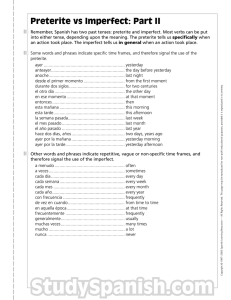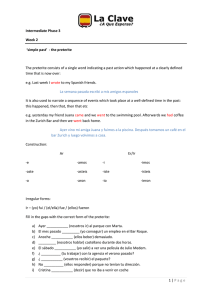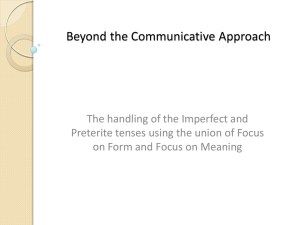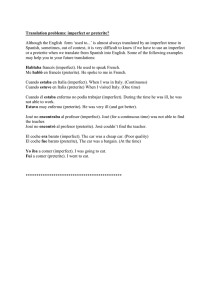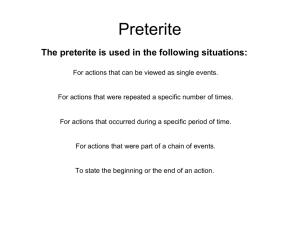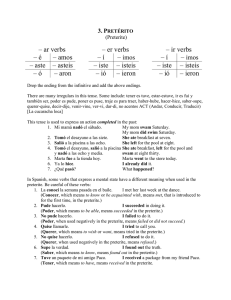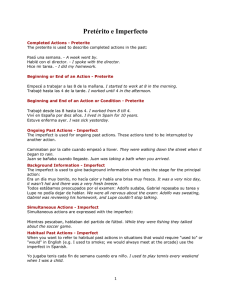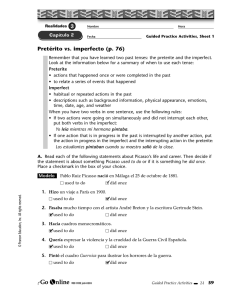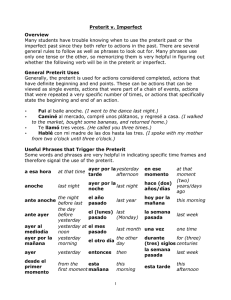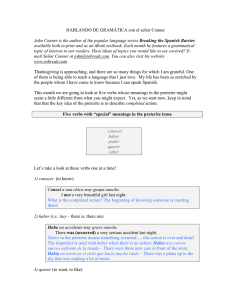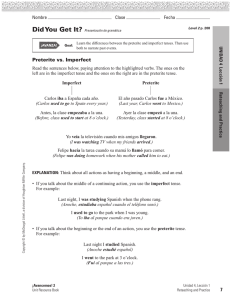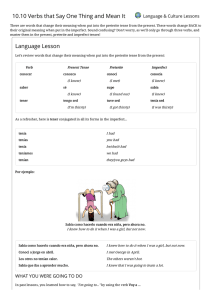Preterite vs. Imperfect
Anuncio
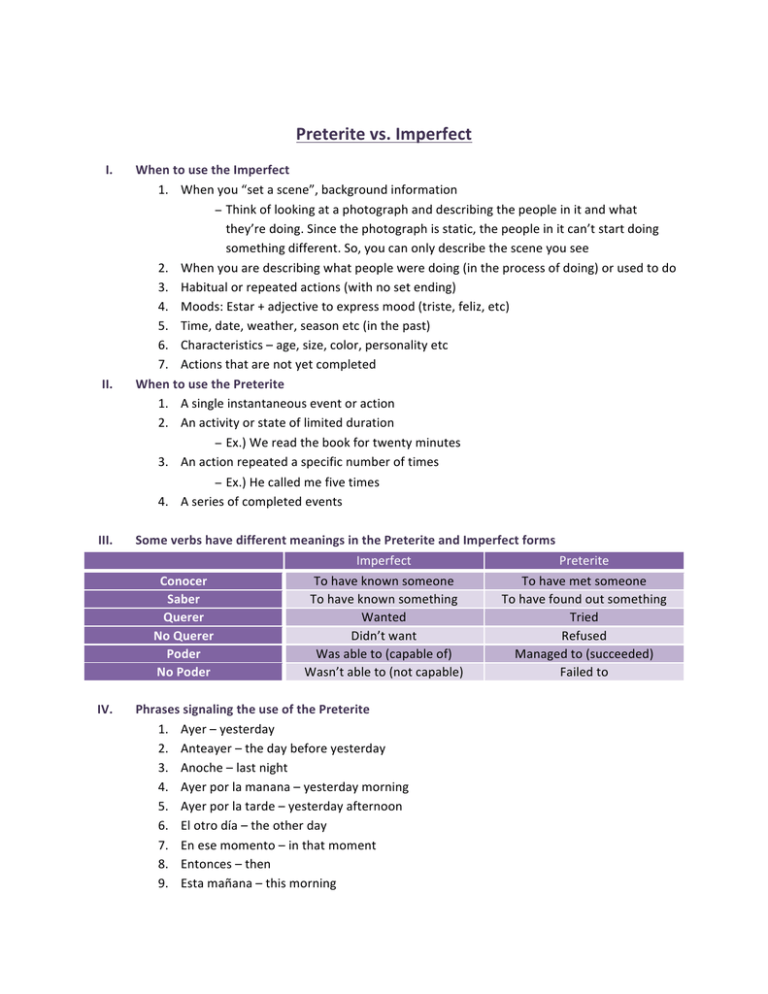
Preterite vs. Imperfect I. II. III. When to use the Imperfect 1. When you “set a scene”, background information − Think of looking at a photograph and describing the people in it and what they’re doing. Since the photograph is static, the people in it can’t start doing something different. So, you can only describe the scene you see 2. When you are describing what people were doing (in the process of doing) or used to do 3. Habitual or repeated actions (with no set ending) 4. Moods: Estar + adjective to express mood (triste, feliz, etc) 5. Time, date, weather, season etc (in the past) 6. Characteristics – age, size, color, personality etc 7. Actions that are not yet completed When to use the Preterite 1. A single instantaneous event or action 2. An activity or state of limited duration − Ex.) We read the book for twenty minutes 3. An action repeated a specific number of times − Ex.) He called me five times 4. A series of completed events Some verbs have different meanings in the Preterite and Imperfect forms Imperfect Preterite Conocer Saber Querer No Querer Poder No Poder To have known someone To have known something Wanted Didn’t want Was able to (capable of) Wasn’t able to (not capable) To have met someone To have found out something Tried Refused Managed to (succeeded) Failed to IV. Phrases signaling the use of the Preterite 1. Ayer – yesterday 2. Anteayer – the day before yesterday 3. Anoche – last night 4. Ayer por la manana – yesterday morning 5. Ayer por la tarde – yesterday afternoon 6. El otro día – the other day 7. En ese momento – in that moment 8. Entonces – then 9. Esta mañana – this morning 10. 11. 12. 13. 14. V. Esta tarde – this afternoon La semana pasada – last week El mes pasado – last month El año pasado – last year Hace dos…días/años – two days/years ago − Can be used with any number and time marker (day, week, month, year etc.) Phrases signaling the use of the Imperfect 1. A veces – sometimes 2. Muchas veces – many times 3. Tantas veces – so many times 4. Varias veces – several times 5. Cada día/mes/año – every day/month/year − Can be used with any time marker (day, week, month, year etc.) 6. Con frecuencia – with frequency 7. Generalmente – generally/usually 8. Siempre – always 9. Todos(as) los(las) semanas – every week − Can be used with any time marker (day, week, month, year etc.) 10. Mientras – while Draw the timeline that Sr. Juves will write on the board
